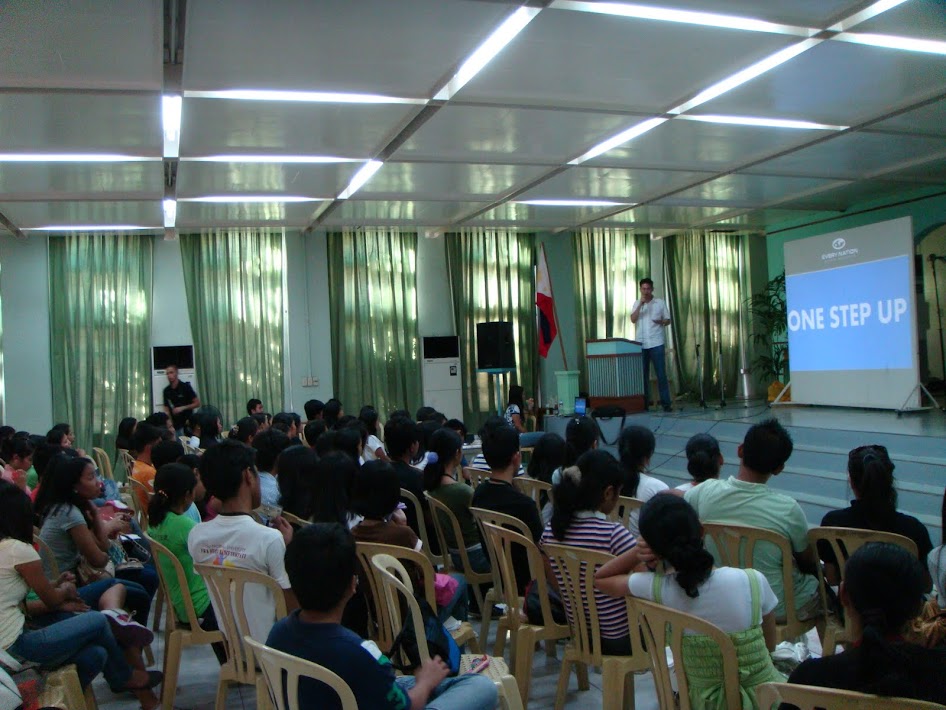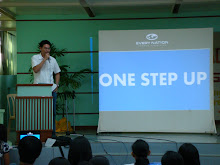Happy New Year! I was thinking about what I wanted to say in the very first day of the year, what is my new year’s resolution. I will begin by declaring 2010, as the beginning of a decade of creativity, innovation , and entrepreneurship. Think about it, there are now more outlets for expressing creativity, engaging innovation and starting entrepreneurship, especially among the youth. It’s a fantastic time to be young, to have all these opportunities that are just within grasp, even for us, the not so young anymore.
I want to share an email I received on a story written by Alistair Johnston, of how Japanese watermelon farmers were able to find a creative and innovative solution to overcome practical obstacles to selling their product.
Space is a premium in Japan. Watermelons take up a lot of space, not only in the personal refrigerators of households but in the shelves of groceries as well. This has led to some stores as well as households avoiding carrying or buying the sweet fruit. This has always been a traditional problem of which there is no solution, unless grocery stores and Japanese houses get bigger. Until a group of Japanese farmers decided to challenge these assumptions. They decided to find a way to make watermelons easier to store, ship, display as well as stock. They invented the square watermelon.
They discovered that by growing watermelons in a square box, the fruit takes on the shape of the box. This new method allowed them to overcome all the traditional obstacles as well as add new benefits, allowing the farmers to charge more for the square watermelon. The new square watermelon was not only stackable but was measured to fit perfectly inside the family refrigerators.
I want to share with you the lessons from this story:
“1.) Don’t Assume: The major problem was that most people had always seen round watermelons so they automatically assumed that square watermelons were impossible before even thinking about the question. Things that you have been doing a certain way your entire life have taken on the aura of the round watermelon and you likely don’t even take the time to consider if there is another way to do it. Breaking yourself from assuming this way can greatly improve your overall life as you are constantly looking for new and better ways to do things.
2.) Question Habits: The best way to tackle these assumptions is to question your habits. If you can make an effort to question the way you do things on a consistent basis, you will find that you can continually improve the way that you live your life. Forming habits when they have been well thought out is usually a positive thing, but most of us have adopted our habits from various people and places without even thinking about them.
3.) Be Creative: When faced with a problem, be creative in looking for a solution. This often requires thinking outside the box. Most people who viewed this question likely thought they were being asked how they could genetically alter water melons to grow square which would be a much more difficult process to accomplish. By looking at the question from an alternative perspective, however, the solution was quite simple. Being creative and looking at things in different ways in all portions of your live will help you find solutions to many problems where others can’t see them.
4.) Look for a Better Way: The square watermelon question was simply seeking a better and more convenient way to do something. The stores had flagged a problem they were having and asked if a solution was possible. It’s impossible to find a better way if you are never asking the question in the first place . Always ask if there is a better way of doing the things that you do and constantly write down the things you wish you could do (but currently can’t) since these are usually hints about steps you need to change. Get into the habit of asking yourself, “Is there a better way I could be doing this?” and you will find there often is.
5.) Impossibilities Often Aren’t: If you begin with the notion that something is impossible, then it obviously will be for you. If, on the other hand, you decide to see if something is possible or not, you will find out through trial and error.”
Think about these lessons as we plan our new year’s resoltutions. Would you buy a square watermelon? Are there areas in our life that need a new perspective? There are a lot of opportunities, challenges as well as dreams to be achieved this 2010.
Let’s follow the examples of these ordinary individuals as they strive to make a difference. Each week, lets all get together and share knowledge, stories, experiences, information, all for the sole purpose of getting One Step Up.
For comments, suggestions or stories that you want to share, email me at stirspecialist@gmail.com , or visit www.stirspecialist.blogspot.com





